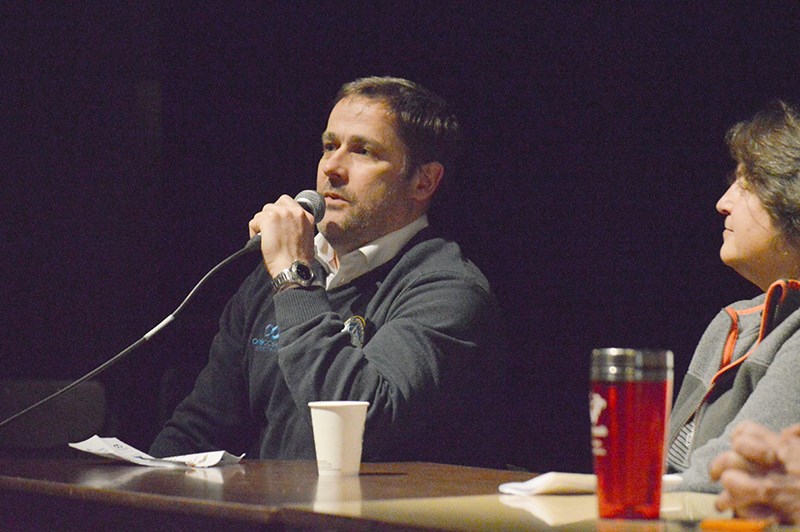�鶹�����was the site of world-premiere Thursday night.
People filled the Eagle Eye Theatre to watch the first viewing of the documentary, A Plastic Ocean.
The event was sponsored by �鶹�����Terminals and local expedition and research company One Ocean Expeditions.
“It’s a world premiere in that it’s being shown around the world on this day,” said Kim Stegeman-Lowe of �鶹�����Terminals. “A Plastic Ocean is a film that’s four years in the making.”
The film looks at what happened when the director Craig Leeson started to document blue whales in the Indian Ocean more than five years ago. He and his crew soon discovered an enormous collection of plastic floating in the middle of the ocean, with some pieces starting to break apart and slowly sink. While such masses have been referred to as “plastic islands,” the filmmakers compare it more to plastic smog taking over the oceans.
Throughout the film Leeson follows researchers and activists around the world to look at how insidiously plastic is working its way into the world’s water.
The latter part of the film examines some of the efforts to stem the tide of plastic, whether it’s through banning the use of plastic bags in grocery stores, finding better ways to recover and recycle the small pellets of plastic called nurdles after items start to break apart or finding better ways to produce the material.
“It’s also a story of hope and what we can do in small, minute amounts,” said One Ocean general manager Catherine Lawton.
Following the film there was a short panel discussion with One Ocean’s managing director Andrew Prossin, Mayor Patricia Heintzman and representatives of three organizations receiving proceeds from the event: Edith Tobe of the �鶹�����River Watershed Society, Nelson Dow of the �鶹�����Royal Canadian Marine Search and Rescue and Merv Stalkie of the �鶹�����Paddling Club. The film raised about $2,500 for the three groups.
Heintzman talked about her travels around the world and how plastic use has changed. For example, she was in India more than 25 years ago and noticed people would not give away plastic bags freely. More recently, she visited Vietnam when someone became upset that she would not accept a free plastic bag for something and threw out the bag in front of her.
“The whole economy of plastic needs to change,” she said.
Members of the panel discussed ways to promote less use of plastics or look for ways their groups could keep the material out of local waterways.
“The least we can do is start right at home,” Stalkie said.
Prossin of One Ocean also said his company has a new agreement to work with the Vancouver Aquarium to conduct research on all of its voyages to study the amount of plastic in the oceans in the areas where its ships are travelling.
“I think this is well and dearly the issue of our time,” he said. “The issue is a choice issue.”
For more information on the film, see www.plasticoceans.org.




